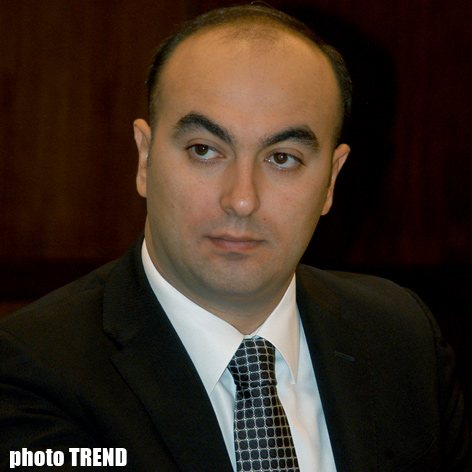Dr. Elnur Aslanov, Office of the President of the Republic of Azerbaijan, Head of the department of political analysis and information provision
(milliyet.com.tr) - The August war of 2008 showed the fragility of security in the Caucasus and that the unresolved conflicts were major threats to peace and stability in the region. Establishing an enduring peace in the region requires the resolution of these conflicts. The South Caucasus Cooperation and Stability Platform, proposed by Turkey in the aftermath of the August war and based on the idea of "cooperative security", was not new for us. The late President, Heydar Aliyev, proposed a similar form of cooperation in the late 1990s. Its success entails, in the first place, the eradication of enmity between states and a clear willingness to compromise for a common future. Armenia, however, is holding up these two processes in the region.
Turkey has seen how difficult it is to expect a contribution to regional security from a country that labels the eastern territories of Turkey as "Western Armenia" in the 11th article of its Declaration of Independence, in so doing, violating the principles of international law on the integrity of borders, and that considers "the international recognition of the 1915 genocide" the principal duty of the state in the same article. It prefers blackmail to mutual understanding in Turkish-Armenian negotiations.
These issues have dominated the Turkish agenda for the last year. Azerbaijan, 20 per cent of whose territory is occupied, has seen Armenia's unconstructive position in negotiations for more than 20 years. Today, the updated Madrid principles are on the negotiating table. Azerbaijan, despite its shortcomings, is willing to accept this proposal for the sake of peace and accord in the region. Armenia, on the contrary, is not constructive. It does not accept the proposals, protracts the process and brings the negotiations back to square one with its absurd proposals.
We understand that the ideology of "genocide" is important to Armenia. This idea has been the crux and backbone of Armenian national existence for decades. Open discussion of this subject will reveal that it is not historical reality, but an ideological, made-up story, which may be tragic for Armenia. They understand this full well. The main reason behind Armenia's unwillingness to sign the protocols and the manipulative processes associated with it is the fear that light will be shed on this ideological, made-up story. This is what Armenia is scared of, despite trying to create an image that "we are not scared of historical realities", by signing the protocols in Zurich. The increased activity of the Armenian lobby for "recognition of the genocide", while the protocol process is ongoing, is thus, understandable. The removal of the Protocols from the Armenian National Assembly agenda by the ruling coalition in parliament two days before 24th of April starkly reveals the true face of the Armenian leadership and its maneuvers.
The victims of the so-called Armenian "genocide" ideology are Azerbaijanis. It should not be forgotten that the violent massacre of Azerbaijanis, who have the same ethnic roots as Turks, in various Azerbaijani regions in 1918 and in Khojaly in February 1992, were the consequences of the hatred and revenge born of the "genocide" ideology and imposed on the Armenian nation for decades. Why don't those talking about Armenians, who fled during the events of 1915, in their every step, do not mention about one million Azerbaijani IDPs who were expelled from their lands by Armenians in 1988-94?
The attempts to separate the occupation of Azerbaijani territories by Armenia from the protocol process are ludicrous. In a process, that pursues peace and stability in the region, the Armenian side perceives the occupation as part of regional security. Regrettably, some powers apply double standards to the occupation of Azerbaijani territories. The four resolutions on withdrawal from the occupied territories, adopted by the UN Security Council 15 years ago, remain unimplemented. To issue peaceful statements in the region on the one hand, and to support the invaders on the other, I believe, is sufficient proof of double standards.
How is it possible that the West supports Armenia, which avoids research into historical facts and makes baseless claims, and does not demand that Armenia revert to the legal situation, let alone impose sanctions on a country that has violated the principles of international law? The OSCE Minsk Group, mediating the negotiation process between Azerbaijan and Armenia, has come up with initiatives for years, but cannot deal with the occupiers - Armenia (or maybe they do not want to).
Armenia occupies the territories of a neighboring country, commits ethnic massacres, has territorial claims against the other two neighbors (Turkey and Georgia), uses every possible mean to promote the so-called "genocide" (except the research into historical facts), and, last but not least, gets support from the West.
Unfortunately, today, the South Caucasus needs two factors: a fair international approach to the process and a responsible and peaceful Armenia.






